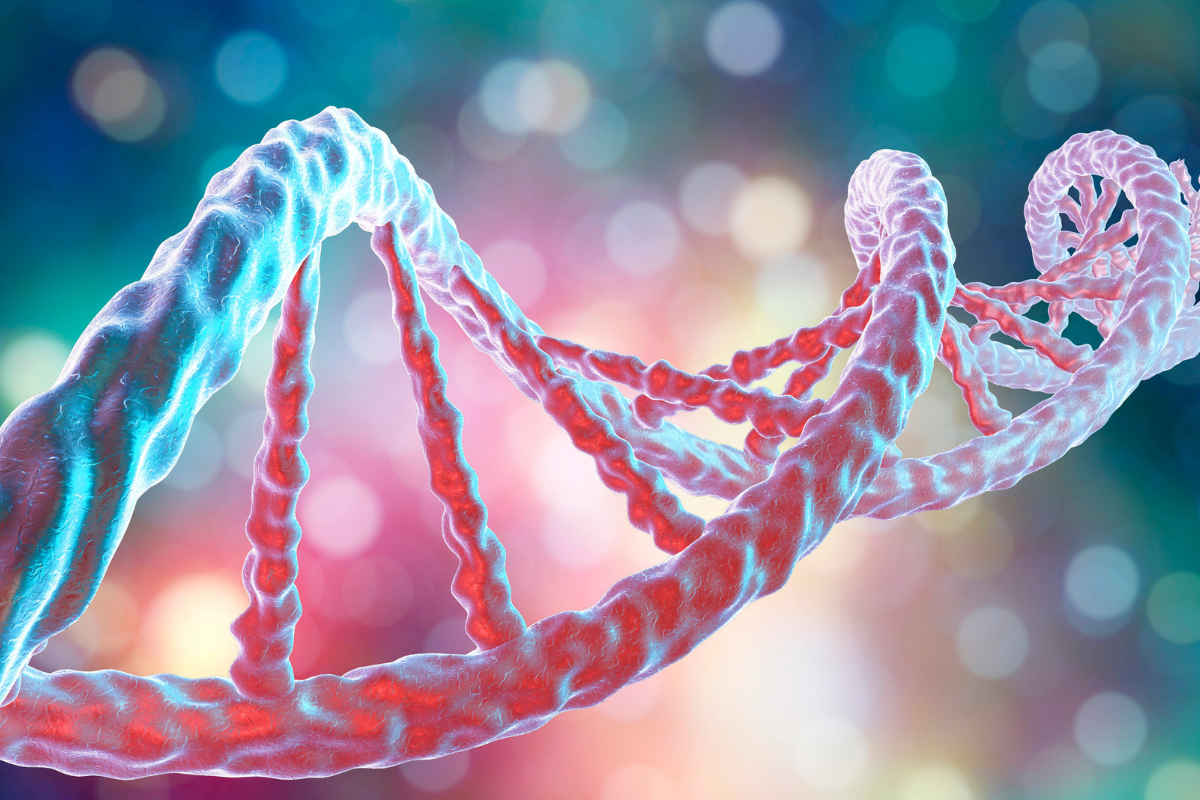Collagen, the body's most abundant protein

Collagen, the body's most abundant protein
About a quarter of all the protein in your body is collagen. Collagen is an important structural protein that strengthens everything from tendons to supporting the skin and internal organs. Collagen is also important for both bones and teeth. Collagen gives the body its structure, protects and supports the softer tissues and connects them to the skeleton. But despite its critical function in the body, collagen is a relatively simple protein.
Collagen is a triple helix
Collagen consists of three chains, wound together in a tight triple helix. Each chain is over 1400 amino acids long. A repeating sequence of three amino acids forms this robust structure. Every third amino acid is glycine, a small amino acid that fits perfectly inside the helix. Many of the remaining positions in the chain are filled by the amino acids: proline and a modified version of proline, hydroxyproline.
Vitamin C
Hydroxyproline, which is crucial for the stability of collagen, is created by a modification of the amino acid proline, after the collagen chain is built up. The reaction requires vitamin C to aid in the supply of oxygen. Unfortunately, we cannot manufacture vitamin C in our bodies, and if we do not get enough of the vitamin in our diet, the results can be disastrous. Vitamin C deficiency slows the production of hydroxyproline and stops the formation of new collagen, ultimately causing scurvy. The symptoms of scurvy - loss of teeth and easy bruising - are caused by the lack of collagen, which is needed to repair the wear and tear caused by everyday activities.
Collagen as gelatin
Collagen from livestock is a familiar ingredient for cooking. As with most proteins, when collagen is heated, it loses its entire structure. The triple helix is unwound and the chains are separated. Then, as this denatured mass of tangled chains cools, it soaks up all the surrounding water like a sponge, forming gelatin.
Collagen as a dietary supplement
Right now, both the health and beauty markets are buzzing with all kinds of products that contain collagen. And considering all the various positive effects collagen can have on your body and well-being, this makes perfect sense. However, the most successful products are those that contain specific collagen peptides. Why? In order to be used better by the body, collagen protein must be hydrolyzed into short, bioactive chains of amino acids. But why are specific collagen peptides better than natural collagen? Let's dive into an explanation of a very complex process.
Collagen peptides consist of a chain of amino acids - where the long protein chains are effectively cut into smaller chains by an enzymatic process. This means that they will not only be more easily absorbed into the body, but also be made more effective compared to natural collagen and other proteins.
This applies in particular to GELITA's bioactive collagen peptides (BCP®s) VERISOL - marine collagen , which consists of very specific polypeptides. They can partially survive digestion, meaning they pass through the intestinal barrier and remain intact. Thus, they may ultimately come to work in the body's target tissues.
Interestingly, science has shown that collagen peptides, depending on chain length, are particularly effective in promoting select health benefits. During the manufacturing process, for example, the chains can be fine-tuned to obtain collagen peptides that directly target cartilage growth, firmer skin or stronger bones.
Because their unique peptide chain structure facilitates absorption, bioactive collagen peptides (BCP®) stand out from the broader class of other polypeptides. One reason is that bioactive collagen peptides exhibit a high concentration of proline and glycine, amino acids that form strong peptide bonds that are more resistant to being broken down by digestive enzymes. In addition, bioactive collagen peptides maintain the characteristic, rare single-helical structure of collagen, which is longer and thinner than the normal alpha helix commonly found in other protein sources. In short, this improves the stability of bioactive collagen peptides and facilitates their intestinal absorption.
Approximately ten percent of the bioactive collagen peptides (BCP®) remain intact during digestion. This is an impressive number, which contributes to effective bioavailability when they enter the bloodstream and directly stimulates the metabolism of connective tissue cells. But what happens to the other peptides? Well, they are effectively broken down into amino acids, which the body then uses as vital building blocks for new connective tissue and other purposes.
As such, intact bioactive collagen peptides (BCP®) stimulate the target cells to produce new collagen, while the free amino acids supply the necessary building materials. This means that practically all nutrients are used.
Exactly how these collagen peptides cross the intestinal wall is still being researched; however, as a result of the bioactive collagen peptides (BCP®), paracellular transport appears to be the preferred route. Interestingly, physical activity appears to increase intestinal permeability, so taking bioactive collagen peptides before and during exercise may be beneficial.
Collagen peptides are an exception to the rule of protein metabolism. How they are digested, absorbed and used by the body is a relatively new field of science and an area of great interest. Many scientific studies are being conducted, but many doctors and health experts - and even some researchers - are still unaware of the latest findings. Nevertheless, knowledge in this area has grown exponentially in recent years, so information from between five and ten years ago is sometimes no longer relevant. Therefore, it is important to ignore outdated beliefs and stay up-to-date with the latest developments.
- Tags: Kollagen/Collagen






